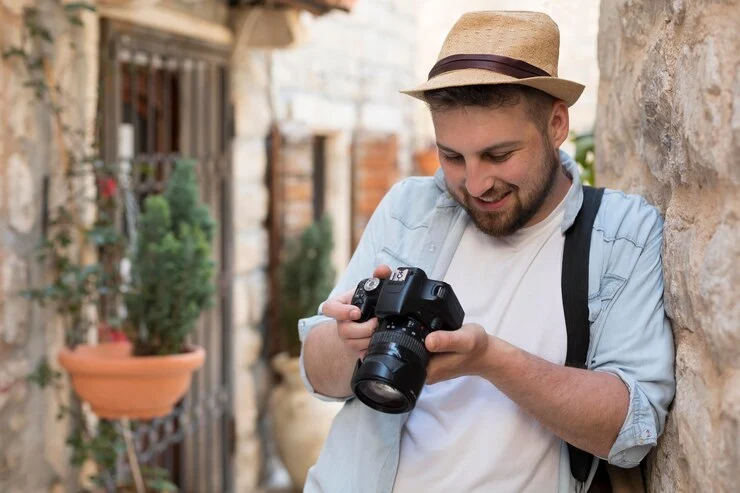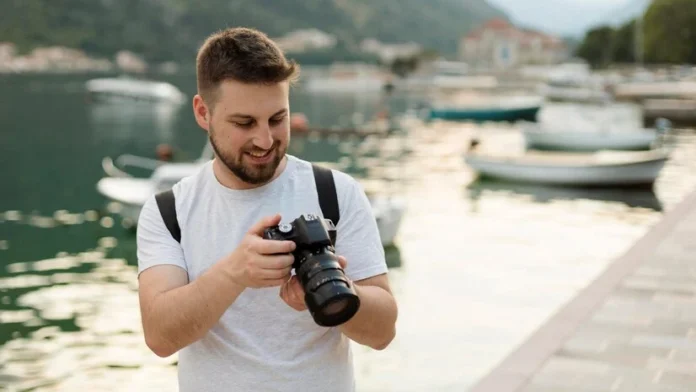In the world of cinematography, few roles are as diverse and crucial as that of a journeyman camera operator. Often tasked with capturing the essence of a scene, this individual must possess a wide range of technical skills, creativity, and adaptability. Whether you’re an aspiring filmmaker or a seasoned professional, understanding the role and responsibilities of a journeyman camera operator can significantly elevate your craft.
What is a Journeyman Camera Operator?
A journeyman camera operator is a seasoned professional who works on various projects, including films, television shows, documentaries, and commercials. Unlike entry-level camera operators, a journeyman has accumulated years of experience, often working under the supervision of directors and cinematographers. They may not be specialized in one specific area but are proficient in handling a variety of cameras, techniques, and situations.
Key Skills Required for a Journeyman Camera Operator
Being a successful journeyman camera operator requires a unique combination of technical and artistic skills. Below are some of the most crucial abilities you need to master:
Technical Expertise
A journeyman camera operator should be proficient in using different types of camera equipment, from DSLR cameras to high-end digital cinema cameras like the ARRI Alexa or RED Digital Cinema. This role requires a deep understanding of camera settings, including aperture, ISO, white balance, and shutter speed. Additionally, they must be adept at handling camera rigs, stabilizers, and drones.
Framing and Composition
The art of framing a shot is essential for storytelling. A journeyman camera operator must understand the principles of composition, such as the rule of thirds, leading lines, and depth of field. This expertise helps ensure that every frame contributes meaningfully to the narrative.
Lighting Techniques
Lighting plays a pivotal role in setting the tone and mood of a scene. A journeyman camera operator often collaborates with the lighting department to ensure that natural or artificial light sources are used to enhance the quality of the shot. They should understand different types of lighting setups like three-point lighting, soft light, and hard light.
Camera Movement
Camera movement can significantly impact how a scene is perceived by the audience. Techniques like tracking shots, pans, tilts, and dolly shots are essential tools in a journeyman’s repertoire. Knowing when and how to use these movements to create emotional resonance or tension is key to becoming a successful operator.
Problem-Solving Under Pressure
Film shoots are often high-pressure environments where time and resources are limited. A journeyman camera operator must be quick on their feet, and capable of adapting to unexpected challenges such as equipment malfunctions or rapidly changing lighting conditions.
How to Become a Journeyman Camera Operator?
The path to becoming a journeyman camera operator typically involves years of on-the-job experience, supplemented by formal education or specialized training. Below are the general steps you’ll need to follow:

Gain Formal Education or Training
While it’s possible to enter the industry without formal education, many journeyman camera operators start by attending a film school or completing courses in cinematography. These programs provide foundational knowledge in areas such as camera operation, editing, and lighting.
Start as a Camera Assistant
Most journeyman camera operators begin their careers as camera assistants. This entry-level role provides the opportunity to learn the nuances of camera equipment, set etiquette, and working with different departments on set.
Build a Strong Portfolio
A solid portfolio is crucial for showcasing your skills. As you gain more experience, compile a reel that highlights your best work in various genres, from narrative film to documentary and commercial projects. A journeyman camera operator should demonstrate versatility in both style and technique.
Network within the Industry
Success in the film industry often depends on who you know. Attend industry events, join professional organizations like the International Cinematographers Guild, and make connections with directors, producers, and fellow camera operators.
Continue Learning and Evolving
Technology in the film industry evolves rapidly, and a journeyman camera operator must stay up-to-date with the latest trends and equipment. Investing in continuous learning through workshops, courses, and certifications will help maintain your competitive edge.
The Role of a Journeyman Camera Operator on Set
The journeyman camera operator is often the unsung hero on set, translating the director’s vision into a visual narrative. They work closely with other departments, including the director of photography (DoP), lighting technicians, and production assistants, to ensure that each shot is perfectly executed. Below are some of the key roles and responsibilities they fulfill:
Camera Setup and Testing
Before shooting begins, a journeyman camera operator must ensure that the camera is correctly configured for the day’s shoot. This involves checking lens calibration, frame rates, and camera settings based on the lighting and movement requirements of the scene.
Collaboration with the Director and DoP
A journeyman camera operator often works directly with the director and DoP to execute their creative vision. This involves interpreting the storyboards, discussing the visual style, and determining the best angles and movements for each shot.
Executing Complex Shots
On many sets, the journeyman camera operator is tasked with executing complex shots that require precision and timing. Whether it’s a Steadicam sequence or a difficult handheld shot, the journeyman must deliver smooth, high-quality footage under pressure.
Post-Production Collaboration
While the primary responsibility of the journeyman camera operator is during production, their role sometimes extends into post-production. Reviewing the footage and ensuring that it meets the technical and artistic standards is an important part of the job.
Challenges Faced by Journeyman Camera Operators
Working as a journeyman camera operator is not without its challenges. Here are some common obstacles that professionals in this field face:
Long Hours and Physical Demands
Film shoots can last for extended periods, sometimes requiring the camera operator to work long hours in physically demanding conditions. The job often requires standing for long periods, handling heavy equipment, and moving in sync with the action.
Balancing Creative and Technical Demands
A journeyman camera operator must strike a balance between creative expression and technical proficiency. It’s crucial to understand the director’s vision while ensuring that the footage is technically sound.
Managing Equipment and Budget Constraints
Budget limitations can sometimes restrict the type of equipment available for a shoot. A journeyman camera operator must be resourceful, finding ways to achieve high-quality results with limited resources.
Conclusion
The role of a journeyman camera operator is a multifaceted one, blending technical expertise with artistic vision. Whether you’re capturing a fast-paced action sequence or a quiet, emotional moment, the journeyman camera operator plays a pivotal role in shaping the visual storytelling of a project. Mastering the required skills, gaining experience, and continuously learning will help you thrive in this rewarding profession.




